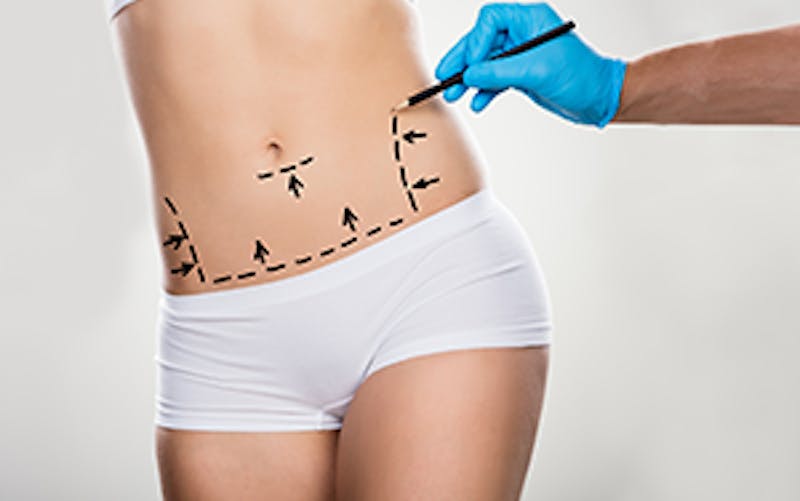
15 Dec 2023
Abdominoplasty, also known as a tummy tuck, is a surgical procedure that can help achieve a flatter and more toned abdomen. It is a significant operation, and preparing for it thoroughly can contribute to a smoother surgery and better recovery.
This article provides practical tummy tuck recovery tips and guidelines to help you prepare for your abdominoplasty, including a Pre-Surgery Checklist.
The Importance of Pre-Op Preparation for a Tummy Tuck
Proper pre-op preparation is important for a successful tummy tuck surgery. It not only reduces the risk of complications but also promotes a smoother recovery. This includes adhering to medical check-ups, following nutritional guidelines, making lifestyle changes, and preparing your home environment for your post-surgery recovery. A tummy tuck checklist can help you keep track of these important steps.
Medical Check-ups Before Abdominoplasty
Before your cosmetic procedure, you will need to undergo several medical examinations to ensure you are fit for the procedure. These include:
Blood Tests
Pre-op blood tests will check your overall health status and determine whether you have any conditions that could interfere with the surgery or recovery. These tests may include a complete blood count, coagulation profile, and others as required by your surgeon.
ECG and Other Scans
An Electrocardiogram (ECG) may be required, especially for patients with a history of heart disease. Other scans, such as ultrasound or CT scans, may also be necessary to get a detailed view of your abdominal area, including any excess skin.
Nutritional Guidelines for Abdominoplasty
Good nutrition plays a vital role in the healing process post-surgery. Therefore, it is important to follow a balanced diet prior to your abdominoplasty.
Foods to Avoid
Tummy tuck patients should avoid foods and supplements that can thin the blood and increase the risk of bleeding, such as aspirin, ibuprofen, vitamin E, St. John’s Wort, some diet pills, garlic supplements, and green tea extracts.
Foods to Focus On
Focus on nutritious foods rich in proteins, vitamins, and minerals. These nutrients promote healing and boost your immune system. Include plenty of fruits, vegetables, and lean meats in your diet. Drinking plenty of water is essential.
Pre-Abdominoplasty Lifestyle Changes
Making certain lifestyle changes before your surgery can significantly improve your recovery and contribute to a speedy recovery.
Quitting Smoking
It is strongly recommended to stop smoking at least a month before your surgery, as it can interfere with the healing process and increase the risk of complications.
Alcohol Intake
Limit your alcohol intake as it can interfere with your body’s ability to heal and may interact negatively with pain medications post-surgery.
Consultations with Your Tummy Tuck Surgeon
Consultations are an indispensable part of the pre-op process for tummy tuck surgery. These in-depth meetings with your surgeon provide a valuable opportunity to discuss your medical history, including any previous surgeries, current medical conditions, and prescription medications you may be taking.
This is the time to delve into the specifics of the tummy tuck procedure, discussing your expectations, potential complications, and the recovery process. Your surgeon will also address any concerns you may have, ensuring you are fully informed and comfortable before proceeding with the surgical procedure.
Questions to Ask
Prepare a list of questions for your cosmetic surgeon. These might include inquiries about the surgeon's experience, the risks and benefits of the procedure, recovery time, and what results you can expect.
What to Expect
During the consultation, your surgeon will explain the procedure in detail, including the type of anesthesia used, the surgical technique, and the recovery process. A physical examination will also be conducted to evaluate your overall health.
Emotional and Mental Preparation for Abdominoplasty
Surgery can be stressful, so it's essential to prepare emotionally and mentally. Consider speaking with a counselor or support group to help manage any anxiety or stress. It's also beneficial to maintain a positive mindset and to visualize a successful outcome.
Organizing Your Home for Tummy Tuck Recovery
Your recovery environment should be comfortable and conducive to rest. For the weeks after surgery, prepare your home by arranging for help with household chores, stocking up on supplies, and setting up a recovery area with necessary items like extra pillows, gauze pads, and ice packs.
Final Week Countdown to Abdominoplasty
The week leading up to your abdominoplasty surgery is a critical time for final preparations. During this period, it's important to avoid strenuous activities that could strain your abdominal muscles and ensure you get plenty of rest to boost your body's natural healing abilities.
To manage pain after your surgical procedure, obtain any prescribed pain medications, such as analgesics, from your plastic surgeon. Buy compression garments to support your abdominal wall and control fluid buildup during recovery.
Also, confirm your transportation arrangements for the day of surgery. Remember, you will be under the effects of anesthesia and will not be able to drive yourself home.
Practical Tips for the Day of the Abdominoplasty
On the day of your surgery, there are several practical tips to keep in mind.
What to Wear
Wear comfortable clothing that is easy to put on and take off. Avoid clothing that goes over your head, as it may be challenging to remove post-surgery.
What to Bring
Pack essential items such as your ID, insurance card, and any paperwork your surgeon has asked you to bring. You should also bring a list of any medications you're currently taking.
Post-Abdominoplasty: A Glimpse into Recovery
After the plastic surgery procedure, you will be under the care of the surgical team until you are ready to go home. It's advisable to have someone accompany you during the first night after your surgical procedure. Avoid heavy lifting and strenuous exercises for several weeks post-surgery to allow your body to heal. Your surgeon will provide specific instructions for optimal tummy tuck recovery, including medications to apply or take orally and when to follow up with your surgeon.
Set Up a Consultation for a Tummy Tuck in Boston, MA
The Boston Center for Plastic Surgery offers comprehensive consultations for individuals considering abdominoplasty. Our team of experienced, board-certified physicians is dedicated to patient care and satisfaction. Schedule your initial consultation today to discuss your options and prepare for a smooth surgery.
Frequently Asked Questions (FAQs)
What shouldn't I eat before my tummy tuck operation?
It's recommended to avoid anti-inflammatory medications, vitamin E, St. John’s Wort, garlic supplements, green tea or green tea extracts, estrogen supplements, and oral contraceptives/birth control before surgery, as these can increase the risk of bleeding and other complications.
How soon before the abdominoplasty should I stop smoking?
You should stop smoking at least a month before surgery, as it can interfere with the healing process. Nicotine constricts blood vessels, which can reduce blood flow to the surgical site and delay healing.
What kind of physical exercise is recommended before a tummy tuck?
Regular, low-impact exercise like walking or cycling can help improve your overall health and prepare your body for surgery. However, you should avoid strenuous activities in the week leading up to your surgery.
How do I choose the right surgeon for my abdominoplasty?
Choose a board-certified plastic surgeon with extensive experience in abdominoplasty. The surgeon should be able to answer all your questions, address your concerns, and provide before-and-after photos of their previous work.
What happens if I don’t properly prepare for my tummy tuck surgery?
Proper preparation is crucial for a smooth surgery and recovery. Failing to adequately prepare can lead to complications during the major surgery, a longer recovery period, and less than optimal results. Always follow your surgeon's pre-op and post-op instructions.
